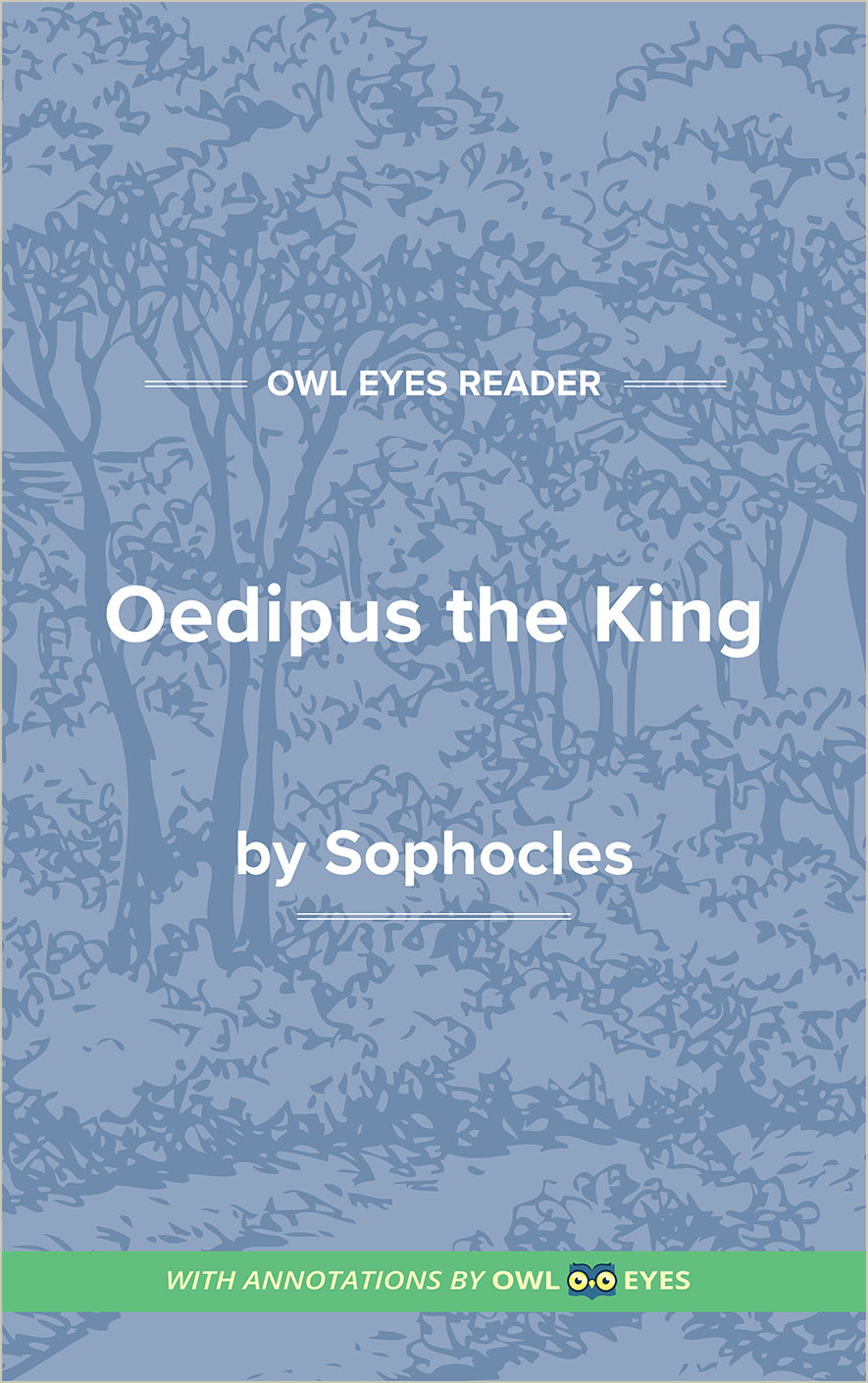Analysis Pages
Character Analysis in Oedipus the King
Oedipus: Oedipus is the king of Thebes. At the start of Oedipus the King, many of the events for which he is known have already elapsed, including the answering of the Sphinx’s riddle, the murdering of Laius, and the union with Jocasta. The play details the aftermath of Oedipus’s mistakes. Oedipus reacts to the news of a plague in Thebes by searching for answers. The plague is the result of his own murder of his father, Laius, and so Oedipus’s search leads to his own undoing. The central tension of Oedipus is the combination of his nobility and his unwitting sinfulness. As Edith Hall noted, “Oedipus can only fulfill his exceptional god-ordained destiny because Oedipus is a preeminently capable and intelligent human being.” His undoing is all the more lamentable for this fact.
Jocasta: Jocasta is the queen of Thebes. She is the mother and wife of Oedipus as well as the widow of Laius. Prior to the events of Oedipus Rex, Jocasta was forced to abandon Oedipus on Mount Cithaeron, where he was then found and raised by a shepherd. Jocasta and Oedipus are depicted as having a loving relationship. Jocasta’s care for Oedipus overshadows her desire for the truth. When the same shepherd arrives in Thebes, claiming to have witnessed Oedipus’s murder of Laius, Jocasta pleads for Oedipus to end his search. She would rather protect her relationship with her son and husband than risk the inevitable destruction the truth would cause. In the end, Jocasta hangs herself from grief.
Tiresias: Tiresias is a blind prophet and seer who serves the house of Thebes for seven generations. Hera cursed him with blindness, at which point Zeus gave him clairvoyance and seven lifetimes as a consolation. Tiresias appears early in Oedipus Rex to advise Oedipus in his search for the murderer of Laius. Knowing the truth, Tiresias tells Oedipus, “You yourself are the criminal you seek.” Oedipus dismisses the prophet, calling him blind. Tiresias retorts by calling Oedipus blind, a wise remark on two levels. Oedipus is metaphorica
Character Analysis Examples in Oedipus the King:
Oedipus the King
🔒""who seeks shall find; Who sits with folded hands or sleeps is blind." ..." See in text (Oedipus the King)
" the burden that I bear Is more for these my subjects than myself. ..." See in text (Oedipus the King)
"but I grieve at once Both for the general and myself and you...." See in text (Oedipus the King)
"by a god inspired ..." See in text (Oedipus the King)
"A blight on wives in travail..." See in text (Oedipus the King)
"CHORUS..." See in text (Oedipus the King)
"in whom Above all other men is truth inborn...." See in text (Oedipus the King)
"I His blood-avenger will maintain his cause As though he were my sire,..." See in text (Oedipus the King)
"This is no time to wrangle but consult How best we may fulfill the oracle...." See in text (Oedipus the King)
"For, let alone the god's express command, It were a scandal ye should leave unpurged..." See in text (Oedipus the King)
"Give him no part in prayer or sacrifice Or lustral rites,..." See in text (Oedipus the King)
"I summon him to make clean shrift to me...." See in text (Oedipus the King)
"All our host is in decline; Weaponless my spirit lies...." See in text (Oedipus the King)
"Why didst thou harbor me, Cithaeron, why Didst thou not take and slay me? Then I never Had shown to men the secret of my birth...." See in text (Oedipus the King)
"My curse on him whoe'er unrived The waif's fell fetters and my life revived!..." See in text (Oedipus the King)
"Why should a mortal man, the sport of chance, With no assured foreknowledge, be afraid?..." See in text (Oedipus the King)
"Thy Thebans? am not I a Theban too? ..." See in text (Oedipus the King)
"but I came, The simple Oedipus; I stopped her mouth By mother wit, untaught of auguries...." See in text (Oedipus the King)
"it were not meet that I should learn From others, and am hither come, myself,..." See in text (Oedipus the King)

